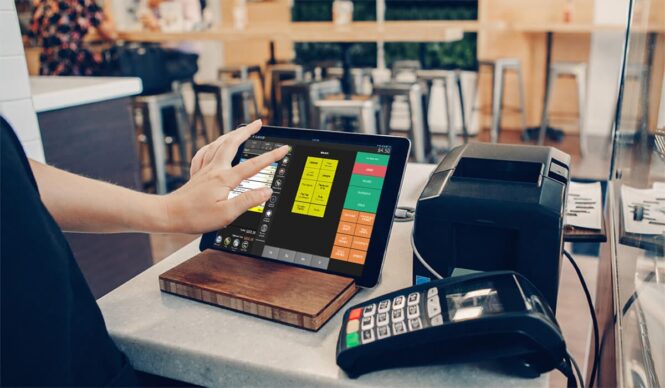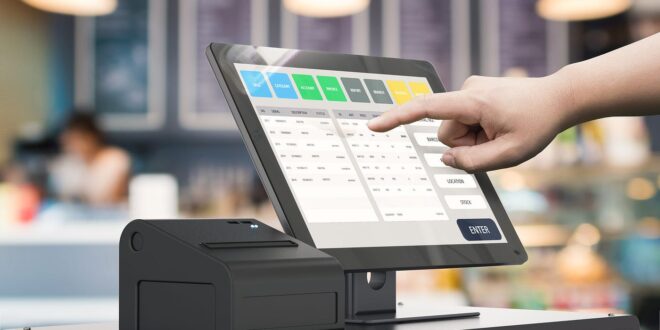Point of Sale (POS) systems are a vital component for modern businesses, bridging the gap between customer transactions and backend operations. Yet, misconceptions about their integration often lead to hesitation or improper implementation. Let’s explore these misconceptions and clarify why they might be misleading.
“POS Integration Is Only for Big Businesses”
Many small to medium-sized businesses (SMBs) believe that POS integration is a luxury reserved for large enterprises with extensive budgets. This misconception arises from the early days when robust POS systems were indeed costly and complex.
Today, POS systems are accessible to businesses of all sizes. There are scalable solutions available, from basic setups for small shops to more complex systems for larger enterprises. The key is to choose a system that aligns with your business needs and growth potential.
Investing in a POS system can streamline operations, reduce manual errors, and enhance customer experiences, providing a competitive edge regardless of business size. Even small cafes or boutiques can benefit from features like inventory management and sales analytics, which can drive growth and efficiency. For detailed information, see more.
“It Is Complicated and Time-Consuming”

Many business owners fear that integrating a POS system will disrupt their daily operations, requiring significant time and technical know-how.
While setting up a POS system does require some initial effort, modern systems are designed with user-friendliness in mind. Many providers offer intuitive interfaces and step-by-step guides, making the process much simpler than it once was.
With cloud-based solutions and mobile POS options, integration can be swift and minimally disruptive. Most systems also offer excellent customer support and training, ensuring that even those without technical backgrounds can manage the transition smoothly.
“These Systems Are Just Fancy Cash Registers”
Some people still view POS systems as glorified cash registers that only handle transactions and record sales.
Modern POS systems are much more than transaction recorders. They act as comprehensive business management tools, offering features like inventory tracking, customer relationship management (CRM), employee management, and sales reporting.
By underestimating the capabilities of POS systems, businesses miss out on valuable data insights and automation that can improve efficiency and profitability. A well-integrated POS system can provide actionable analytics, helping businesses make informed decisions.
“They Are Too Expensive”

The perception of POS systems as a significant financial burden persists, especially among SMBs.
While there are high-end POS systems with extensive features, there are also affordable solutions tailored for different budgets. Many POS providers offer flexible pricing models, including subscription-based services that reduce upfront costs.
The initial investment in a POS system often pays off in the long run through improved efficiency, reduced errors, and enhanced customer service. The cost should be viewed as an investment in your business’s future, rather than an expense.
“They Are Not Secure”
Concerns about data breaches and cyberattacks lead some business owners to believe that POS systems are inherently insecure.
Security is a top priority for POS system providers. Modern systems incorporate advanced encryption, tokenization, and other security measures to protect sensitive data.
By choosing a reputable POS provider and following best practices, businesses can ensure their transactions and customer data are secure. Regular software updates and compliance with industry standards like PCI DSS further enhance security.
“You Can’t Integrate POS with Existing Systems”

Some businesses fear that integrating a new POS system with their existing software (e.g., accounting, inventory, e-commerce) will be difficult or impossible.
Most modern systems are designed with integration in mind, offering APIs and compatibility with a wide range of third-party applications. This allows businesses to seamlessly connect their POS with other essential systems.
Integration can streamline operations by ensuring data flows smoothly between systems, reducing manual data entry, and minimizing errors. Whether you need to sync sales data with accounting software or manage online orders, a well-integrated POS system can facilitate these processes.
“Training Staff on a New POS System Is a Hassle”
Business owners worry that introducing a new system will require extensive training, taking time away from regular operations.
While training is necessary, most modern POS systems are designed to be user-friendly, with intuitive interfaces that minimize the learning curve. Additionally, many providers offer training resources, including videos, manuals, and customer support.
The initial time spent on training can lead to significant long-term benefits. A well-trained staff can operate the system efficiently, provide better customer service, and utilize the system’s features to improve sales and operations.
“These Systems Don’t Need Regular Updates”

Some businesses view POS systems as set-it-and-forget-it tools, not realizing the importance of regular updates.
Like any software, these systems require regular updates to ensure optimal performance, security, and access to new features. Updates can fix bugs, improve security measures, and enhance functionality.
Neglecting updates can lead to security vulnerabilities, reduced system efficiency, and missed opportunities for new features that could benefit your business. Staying current with updates ensures your system remains a valuable asset.
“Mobile POS Systems Are Less Reliable”
There’s a misconception that mobile systems, often used on tablets or smartphones, are less reliable than traditional systems.
Mobile POS systems are becoming increasingly robust and reliable, offering many of the same features as traditional systems. They provide flexibility, allowing businesses to accept payments anywhere, from trade shows to food trucks.
Mobile systems are not only reliable but can also enhance customer experiences by providing convenience and speed. They are particularly useful for businesses that need mobility and versatility in their operations.
“POS Systems Only Benefit the Sales Process”

It’s easy to think that these systems are only about processing transactions and handling payments.
They play a critical role in various aspects of a business. They assist in managing inventory, tracking customer preferences, analyzing sales trends, and even marketing.
By leveraging the full capabilities of a POS system, businesses can gain insights into customer behavior, optimize inventory management, and tailor marketing efforts. This holistic approach can drive sales and improve customer satisfaction.
In Summary
POS system integration offers numerous benefits, but misconceptions often hold businesses back from fully utilizing these tools. Investing in a modern system can streamline processes, enhance customer experiences, and provide valuable data insights, making it an essential component for success in today’s competitive market.
 Imagup General Magazine 2025
Imagup General Magazine 2025



